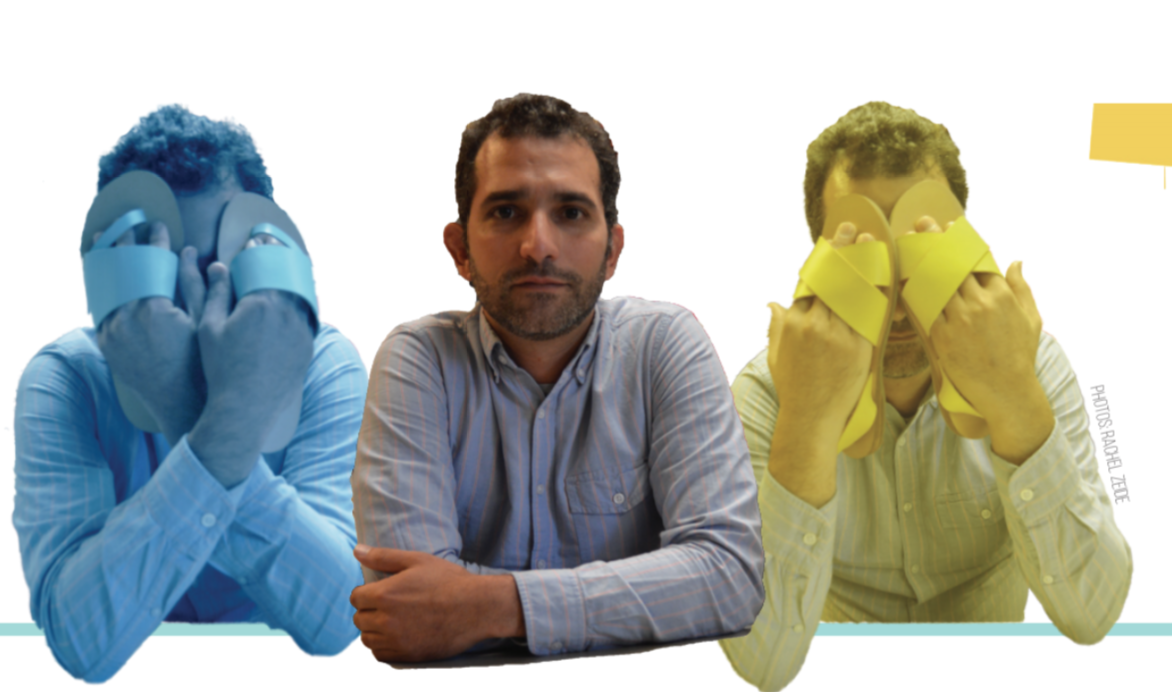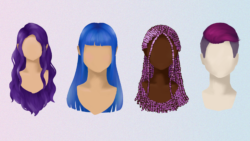Nickolas Theros’s knack for selling sandals surprised him at first. He’s new to the business, but he’s a natural. He brought two pairs of his leather Greek sandals to the Voice office for his interview—one mustard yellow and the other bright turquoise. Turning them over in his hands, he described how he, a 2003 graduate of Georgetown’s Masters of Arts in Arab Studies program, found himself starting a family-run, socially-aware luxury sandal business last year. The company, Laiik, opened a pop-up store in Georgetown this July.
Nickolas Theros and his sister, Helene Theros, launched Laiik together, though he is quick to stress that it’s not a family business. “It’s family-run at the moment, but it’s a bunch of people,” he said. Still, the company is the brainchild of the Theros siblings. Down to the design of the sandals, it’s a synthesis of their lives.
The Greek word laiik means “of the people.” It’s inspired, Theros said, by the vegetable markets in Athens, the laiki, where he and his sister spent time as children. They wanted a name that emphasized their Greek- American roots.
“Greece had just been going through the crisis,” he said, referring to the country’s debt crisis and years of bailouts. “I wanted to focus on the resiliency of these people.”
The siblings’ father, Patrick Theros (SFS ’63), was a lifelong U.S. foreign service officer posted primarily in the Middle East. He served as the U.S. ambassador to Qatar from 1995-98. Nickolas Theros himself was born in Damascus and grew up in Jordan, Syria, and the United Arab Emirates. Still, Theros felt a strong connection to Greece, and the family visited the country regularly.
“[Greece] was this oasis of stability in our lives, one that we felt very strongly about,” Theros said. “Shoes were a big part of that.”
Nickolas Theros and his sisters, Helene and Marika, had been tossing the idea for Laiik around for years. Their family had always brought traditional Greek sandals back to friends, who loved them. “We were just like, wow, Greece doesn’t even realize what a market it has in the U.S. for these sandals,” he said.
So when Helene Theros found herself between jobs in 2017, Nickolas Theros dropped his business consulting work to start the company with her. The two went on a soul-searching trek to Athens, armed with their idea to modernize Greek sandals for the American market.
“We re-fell in love with Athens,” Theros said of this trip. “It’s like New York and Miami rolled up together. There’s so much energy, so much creativity.”
In Athens’ Peristeri district, the idea solidified. The two discovered a shoe factory run by Dmitri Fanourgiakis and Sofia Samouridou, a married couple who had fallen in love in footwear design school. “They’re just insanely cool people,” Theros said. “Being a shoemaker is a tough life. You have to really love it.” All Laiik shoes are handmade in their factory.
The trip to Athens also led them to their designer, Jemima Janney, who had worked with big-name labels like Rag & Bone and Billy Reid. Theros speaks highly of her. “She’s like us. Very philhellenic,” he said.
Janney brought sleek designs and vivid colors to the sandals. The palette, she said, is crucial; she uses vegetable-dyed vachetta leather from Italian tanneries to get it right. “Bright colors weren’t readily available in Greek history, so we wanted to use bold, vibrant leathers to bring new life to the sandal,” she wrote in an email to the Voice.
The colors pop, but Theros, holding up the blue pair of sandals he brought, insisted that their shade of turquoise could be matched with any outfit. That’s the delicate balance he strives to strike with Laiik—between old and new, bold and reserved.
As he told Laiik’s story, Theros laughed easily at the risk that comes with this kind of venture. “I have a very healthy risk appetite. Maybe my mom thinks it’s unhealthy,” he said. “I love projects, but this one marries most of the things I want.” His passion for the project made it worth the financial gamble.
This passion goes beyond just sandals. Theros describes the design of his shoes as intimately tied to Greece itself. The changes they made to the classic Greek sandal design are meant to reflect Greece today. “We wanted to also imbibe [the design] with the modern Greek lifestyle,” he said. “There’s this kind of DIY creativity, entrepreneurs flourishing.”
While the siblings hope the shoes showcase Greek artisanship, they see the story as more complicated. Post-crisis, Greece still faces high levels of unemployment and a weak economy. “[Greece] needs help,” Theros said. “It needs access to capital. It needs all these different things.”
Helene Theros feels similarly. In an email to the Voice, she described her vision for the company. “We wanted to highlight Greece not only as a beautiful place to visit, but a vibrant, creative country emerging from a difficult economic crisis,” she wrote.
Greece also struggles to accommodate a constant influx of asylum seekers and economic migrants, primarily from Syria, Afghanistan, and Iraq. These groups often cannot land formal employment and are forced into exploitative working conditions with no access to legal recourse.
Nickolas Theros feels connected to migrant communities in Greece. He spent much of his childhood in the Middle East, and after graduating from Georgetown, worked for years with the private sector on reconstruction efforts in Iraq. He and his sister wanted Laiik to engage with the situation from the beginning. “We were asking, what are we doing to create added value for groups in need in Greece?” he said. “And that includes migrants.”
Laiik is developing partnerships with organizations in Athens that help migrants develop employable skills. The company plans to donate their scrap leather to these groups, where workers can turn it into marketable craft goods. This is part of Laiik’s focus on sustainability, too. They’ve vetted their leather provider for environmentally friendly practices, and are looking to get additional sustainability certifications. They want to minimize their waste, though Theros admits that it’s a work in progress.
“If we couldn’t do the social and sustainability side, I don’t think we would do it,” Theros said. “We try never to forget it.”
Theros knows that the company is just starting out, both in its social and business ventures. But he’s endlessly optimistic about the future of Laiik and for good reason. The company’s first summer was a success. Their pop-up shop, at the corner of Georgetown’s 33rd and M streets, drew attention—from shoppers and from fellow designers. “Other boutiques that are way more established than ours were sending people our way and buying our shoes,” Theros said. “It was really validating.”
They’ll be back in D.C., he said, once it’s sandal weather again. “We are already lucky to feel that we got what would be considered in the fashion industry as traction,” Theros said. “Which is funny, being in shoes.” He laughed, but proudly. After all, that’s no easy feat.







